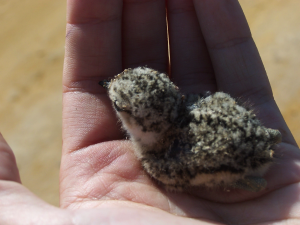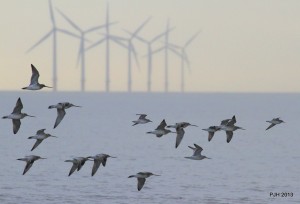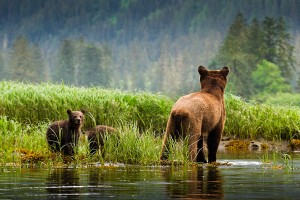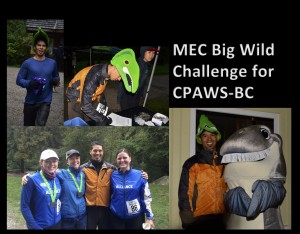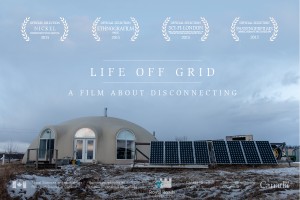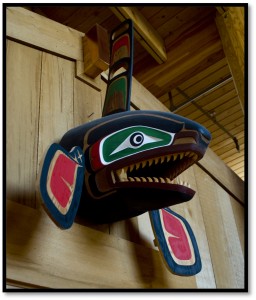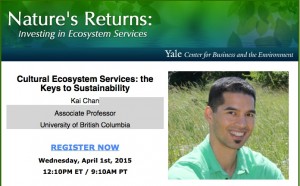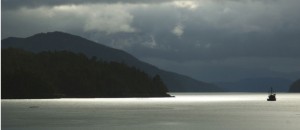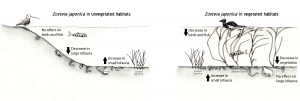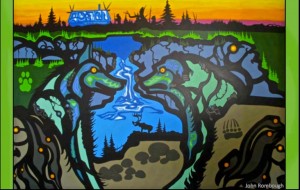Slideshow
Beyond intrinsic vs. instrumental: Relational values appeal broadly
The CHANS lab paper (led by Kai)–on relational values as an alternative values-framing for environmental protection and sustainability–was just published in PNAS. Chan, K. M. A., P. Balvanera, K. Benessaiah, et al. (2016). “Why protect nature? Rethinking values and the environment.” PNAS 113(6): 1462–1465. http://www.pnas.org/content/113/6/1462.full
Engaging Communities in Offshore Wind: Case Studies and Lessons Learned from New England Islands
Sarah Klain collaborated with the non-profit organization Island Institute to report on lessons learned about community engagement, community benefits and offshore wind farms proposed near three New England islands. Residents of these island are likely to be the first impacted by offshore wind farms in North America. Island community members may influence the future of this industry […]
Kai publishes an op-ed on trophy hunting (a moral test, not cost/benefit calculus)
Kai published an op-ed in the National Observer on trophy hunting for grizzly bears in B.C. In it he warns Premier Christy Clark that her stance on this issue risks tarring her with a moral stain, as many voters see this as an issue of appropriate vs. abhorrent relationships with nature, not a purely economic matter.
Chan’s lab raises $745 for CPAWS-BC
Ale, Sarah, Ally, and Kai raised $745 for Canadian Parks and Wilderness Society as part of The Big Wild Challenge trail race.
‘Life Off Grid’ now available on Video On Demand
Jonathan Taggart’s ethnographic film about how and why some Canadians choose to live ‘off the grid’ is now available to the public through Video On Demand. You can watch it here.
Healthy oceans, economies and communities
Kai Chan and Sarah Klain spoke on why thriving marine ecosystems matter for British Columbia as part of a webinar with economists Michelle Molnar and Ngaio Hotte. Here’s a link to the audio and visual recording of their talks on market and non-market benefits from the ocean, the contribution of particular industries to BC’s economy, social and […]
Kai’s webinar for Yale University Centre for Business and the Environment is online
Kai Chan presented his research on building frameworks to conceptualize ecosystem services in a webinar for the Yale University Centre for Business and the Environment, emphasizing cultural ecosystem services to highlight importance of supporting ecosystem services to catalyze sustainability. The YouTube video is here.
Economic importance of marine conservation and planning
David Suzuki Foundation invites Kai Chan and Sarah Klain to discuss why abundant, diverse and clean marine ecosystems are important to BC’s coastal communities and economy.
Megan (lab alum) and Kai publish on the potential impact of an invasive seagrass
Megan Mach (lab alum), Sandy Wyllie-Echeverria (UW seagrass researcher), and Kai Chan summarized 40 years of scientific research on Zostera japonica, a nonnative seagrass species in the Northeast Pacific, to investigate its effect on ecosystem processes and identify research gaps that might interfere with management objectives. Our analysis was especially relevant for ongoing policy discussion […]
Nathan Bennett publishes new report, “Conservation Social Sciences: What, Why, and How?”
CHANS lab post-doc Nathan Bennett co-led the production of new report, Conservation Social Sciences: What, Why, and How? The report aims to stimulate dialogue among conservation organizations, foundations, agencies, practitioners and researchers about the role of the conservation social sciences, to build capacity, promote knowledge and foster engagement with conservation social sciences to improve conservation practice and outcomes.

